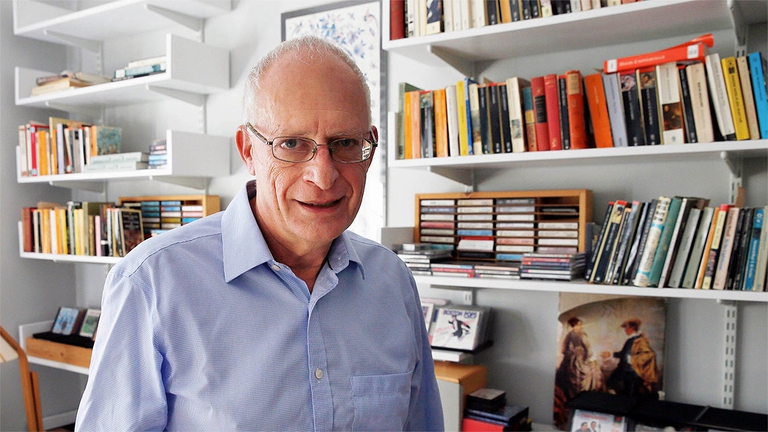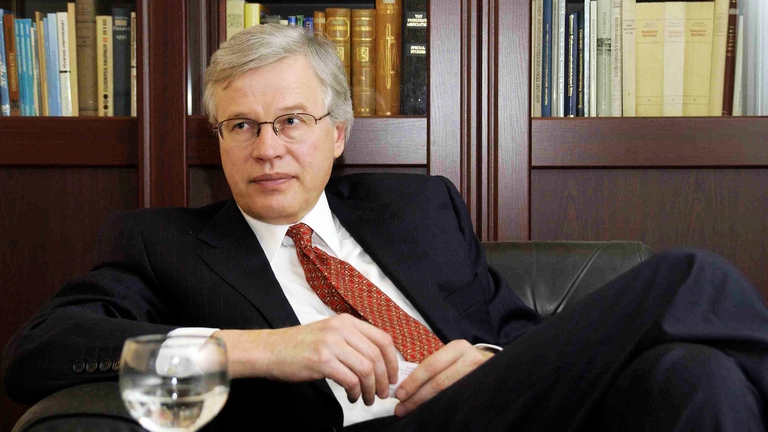
Malala Yousafzai became the youngest-ever Nobel Prize winner for her fight for the right to education. A biography of the ground-breaking Pakistani activist.
Oliver Hart and Bengt Holmström won the Nobel Prize in Economics 2016 The two winners of the Nobel Prize in Economics 2016 Oliver Hart and Bengt Holmström have been studying how contracts and incentives influence business decisions and relationships since the ‘70s. “This year’s laureates have developed contract theory – the Royal Swedish Academy explains – a comprehensive framework for
The two winners of the Nobel Prize in Economics 2016 Oliver Hart and Bengt Holmström have been studying how contracts and incentives influence business decisions and relationships since the ‘70s. “This year’s laureates have developed contract theory – the Royal Swedish Academy explains – a comprehensive framework for analysing many diverse issues in contractual design, like performance-based pay for top executives, deductibles and co-pays in insurance, and the privatisation of public-sector activities”. “The new theoretical tools created by Hart and Holmström are valuable – the Academy’s public notice reads – to the understanding of real-life contracts and institutions, as well as potential pitfalls in contract design”. The two laureates will share the honour as well as the 8-million krona (826,000 euros) prize of the Sveriges Riksbank.
Interestingly, the Economic Sciences Prize Committee just honours those theoretical studies that have an impact on society and are effective in solving real problems. Last year, another British laureate, Angus Deaton, won the prize for his analysis of poverty. “The Royal Swedish Academy of Sciences has recognised these relationships for years – Fabrizio Galimberti wrote in Il Sole 24 Ore – and is awarding prizes to people who distinguish themselves in economic sciences”.
Economics is embracing other human sciences including sociology, politology, psychology, history, law and neurology. And the award winning laureates exactly work in the field of law and economics, a combination of two social sciences.
The contract theory analyses most practical problems affecting economics and society.
The Nobel Prize winners’ studies can answer the following questions: Should teachers, healthcare workers and prison guards be paid fixed salaries or should their wage be performance-based? Should hospitals be publicly or privately owned? Should garbage collection be subcontracted to private companies?
Hart and Holmström studied the role of contracts in modern society, which is full of relationships, interchanges and potential conflicts of interest. They’ve developed a comprehensive framework that analyses contracts and gives the opportunity to control them more effectively.
For example, it ensures that corporate executives earn adequate wages according to their accomplishments or that insurances refund according to the payments they receive from their clients.
The theory they developed analyses performance-based pay for top executives, deductibles and co-pays in insurances, and the privatisation of public-sector activities.
Fun fact: @TheSimpsons‘ Milhouse once predicted MIT Prof. Holmström would win a #NobelPrize. Today, he was right! https://t.co/CC0LRk1avy pic.twitter.com/syhMiJBK2A
— MIT (@MIT) 10 ottobre 2016
Oliver Hart was born in London in 1948 but is an American citizen. In 1969 he earned his Bachelor’s Degree in mathematics at King’s College, Cambridge, and his Ph. D at Princeton University in 1974, United States. Since 1993 he’s Andrew E. Furer Professor of Economics at Harvard University.
Hart’s research provides us with new theoretical tools for studying which kinds of companies should merge, what is the proper mix of debt and equity financing and even when institutions such as schools or prisons ought to be privately or publicly owned. In the ‘80s, Hart made innovative research that has been recognised today. He focused on the important case of incomplete contracts and made fundamental and interesting contributions to the contract theory. Contracts can’t specify every eventuality. Starting from this premise, Hart’s theory is useful to mitigate this problem because it spells out optimal allocations of control rights. The theory has shed new light on the ownership and control of businesses and has had a huge impact on many fields of economics, political science and law.
pic.twitter.com/5W5TUM0hTZ
From interview today with Oliver Hart, 2016 Laureate in Economic Sci: #NobelPrize pic.twitter.com/5W5TUM0hTZ
— The Nobel Prize (@NobelPrize) 10 ottobre 2016
Bengt Holmström was born in 1949 in Helsinki, Finland (but belongs to the Swedish-speaking minority of Finland); he obtained a degree in mathematics at the University of Helsinki, and a Master of Science degree in Operations Research at Stanford University in 1975 and a Ph.D at Stanford’s Graduate School of Business. He’s currently Paul A. Samuelson Professor of Economics at the Massachusetts Institute of Technology, where he was also head of the Economics Department from 2003 to 2006.
Holmström in the late ‘70s demonstrated how a “principal” must draw up a contract for an “agent”, whose activities can’t be controlled by the principal. For example, how a company’s stakeholder can design a contract for the company’s CEO.
His informativeness principle says that the contract must link the pay to relevant information on the agent’s performance, weighing up risks and incentives.
Holmström tried to apply this theory to real life, examining the contract’s weak and strong points in case this awards workers with a promotion or in case individual members of a team free-ride on the efforts of others.
Interview from today with Bengt Holmström is coming up soon! #NobelPrize pic.twitter.com/68NeWFSgfo
— The Nobel Prize (@NobelPrize) 10 ottobre 2016
The Nobel Prize in Economics was awarded in the past to eminent people including Milton Friedman, Paul Krugman, Friedrich von Hayek, Joseph Stiglitz.
The winners of the Nobel Prize in Economics also include non-economists: Daniel Kahneman, a psychologist who had never studied economics won it in 2002, Maurice Allais, a mathematician, physicist and historian won it in 1988 for his pioneering contributions to the theory of markets and efficient utilization of resources.
The theoretical tools developed by this year’s laureates have been considered fundamental in order to understand how contracts work and doesn’t work in real life. “An eternal obstacle to human cooperation is that people have different interests. – the Royal Swedish Academy highlights – in modern societies, conflicts of interests are often mitigated if not completely resolved by contractual arrangements”. That’s why their studies have been officially recognised.
Siamo anche su WhatsApp. Segui il canale ufficiale LifeGate per restare aggiornata, aggiornato sulle ultime notizie e sulle nostre attività.
![]()
Quest'opera è distribuita con Licenza Creative Commons Attribuzione - Non commerciale - Non opere derivate 4.0 Internazionale.
Malala Yousafzai became the youngest-ever Nobel Prize winner for her fight for the right to education. A biography of the ground-breaking Pakistani activist.
Nobel Peace Prize winner Aung San Suu Kyi’s biography is tied with that of her parents and the history of Myanmar (formerly Burma). A story marked by nationalism, Western influence and compromises with the military.
The United Nations World Food Programme has been awarded the 2020 Nobel Peace Prize for its work in the fight against hunger.
Abiy Ahmed was awarded the Nobel Peace Prize for reaching peace with Eritrea. Yet, Indigenous groups in Ethiopia’s Lower Omo Valley have been abused by security forces, a fact that the prime minister must address, says the Oakland Institute.
Denis Mukwege, who was awarded the Nobel Peace Prize in 2018, is known as the “doctor who mends women” because in his hospital in Africa he healed thousands of rape victims, in their body and soul. We interviewed him in Milan.
Colombian President Juan Manuel Santos won the Nobel Peace Prize 2016 “for his resolute efforts to bring the country’s more than 50-year-long civil war to an end”. The committee highlighted that “cost the lives of at least 220,000 Colombians and displaced close to six million people. The award should also be seen as a tribute to the
Cyclist Paola Gianotti will ride her bike with enthusiasm to hand in the Bike the Nobel signatures collected by the Caterpillar radio programme to Oslo’s Nobel Committee.
Bicycles as candidate for Nobel Peace Prize. Caterpillar, the radio programme broadcast on Rai Radio 2, known for the environmental initiative M’illumino di meno, is launching the Bike the Nobel campaign in order to present bicycles as a candidate for Nobel Peace Prize. The programme, hosted by Massimo Cirri and Sara Zambotti, relaunched the idea
The Tunisian National Dialogue Quartet, a group of four civil society organisations that worked to stabilise peace and democracy in Tunisia, has been awarded the 2015 Nobel Peace Prize “for its decisive contribution to the building of a pluralistic democracy in Tunisia in the wake of the Jasmine Revolution of 2011”. The 2015 Nobel Peace









